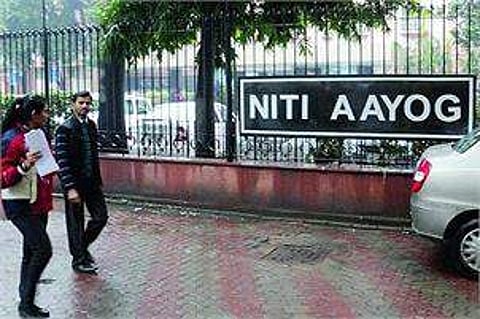

BHUBANESWAR: In a bid to provide access to clean and safe drinking water, 505 solar-based dual pumps have been proposed to be installed in 10 aspirational districts identified by NITI Ayog.
The drinking water projects will be set up in Balangir, Koraput, Kalahandi, Kandhamal, Rayagada, Nabarangpur, Dhenkanal, Malkangiri, Gajapati and Nuapada under Swajal scheme at a cost of `21.92 crore.
Engineer-in-Chief of Rural Water Supply and Sanitation has sent the district-wise proposals to the Principal Secretary of Panchayati Raj and Drinking Water department for approval.
According to the proposals, while highest 70 such units each will be set up in Balangir and Koraput districts, 65 solar dual pumps will be installed in Kalahandi, 60 in Kandhamal, 55 in Rayagada, 50 in Nabarangpur, 40 in Dhenkanal, 35 each in Malkangiri and Gajapati and 25 in Nuapada.
The Swajal scheme was launched by the Centre for sustained water supply in rural areas. The scheme aims at ensuring availability of clean drinking water to every household round year and also generate employment. While 90 per cent of the project is funded by the government, 10 per cent is contributed by the beneficiary communities.
“The scheme is demand driven and based on community-led approach. It is being implemented only in the aspirational districts. As per the Swajal guidelines, mini piped water supply projects and installation of solar dual pump in hand-pump tube-wells will be taken up in those districts,” said an official.
Apart from the solar based units, 44 mini pipe water supply projects will also be set up in Dhenkanal district. The projects come as boon for villages which are deprived of safe drinking water even after 70 years of Independence.
While management of the operation will be managed by local villagers, hundreds of technicians will be trained under the scheme to maintain and operate the units.
“All villages will get water supplied through fitted pipes. It will ensure that the water is not contaminated. Reservoirs will be constructed in villages and common tap connection will be given to the households. Maintenance of these pipes will be taken care of by the technicians,” the official added.